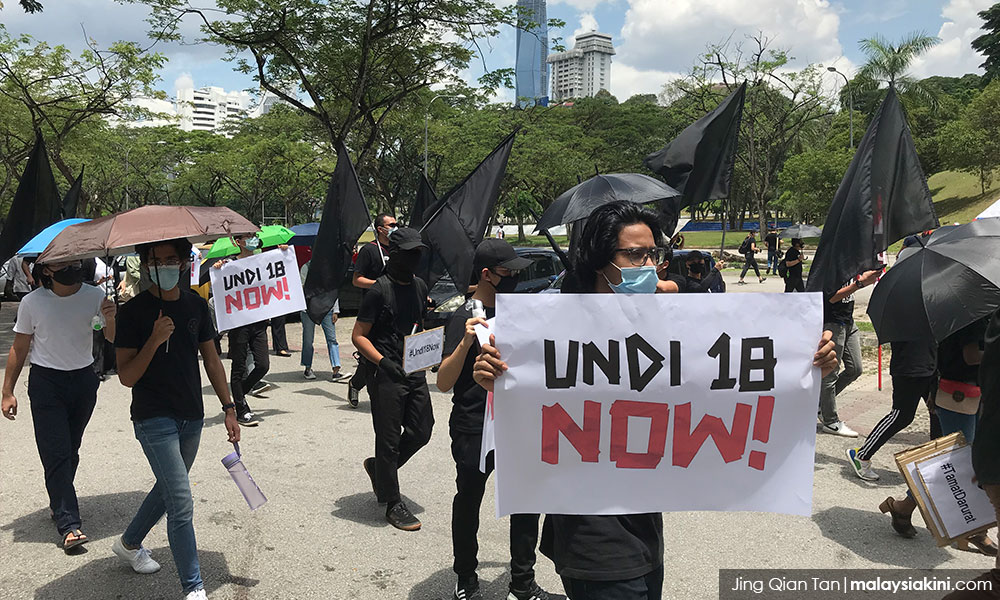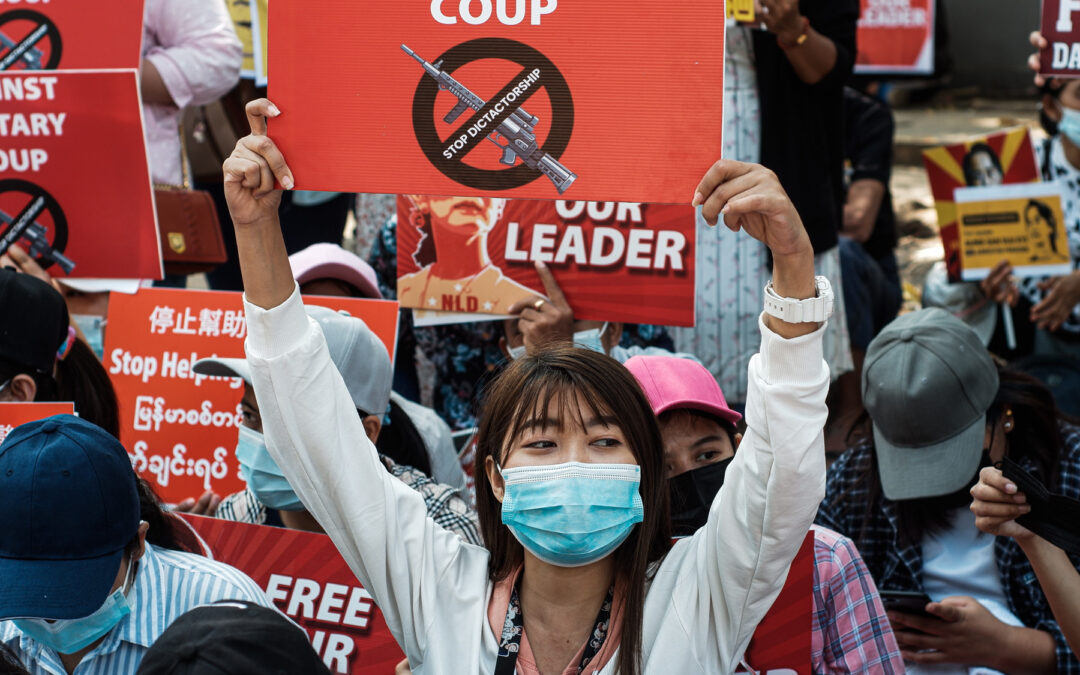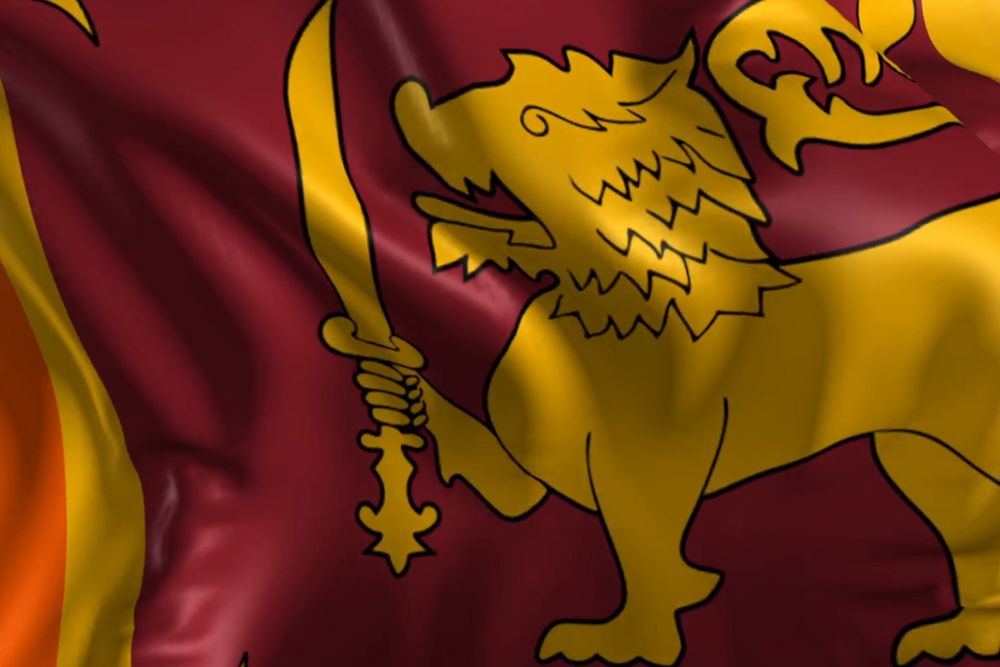
Apr 2, 2021 | News
The ICJ today called on the Malaysian authorities to drop their criminal investigations of at least 11 participants in the peaceful Undi18 protests.
The Dang Wangi district police opened investigations against Dato’ Ambiga Sreenevasan, an ICJ Commissioner, and at least ten other individuals including Simpang Renggam MP Maszlee Malik, Petaling Jaya MP Maria Chin Abdullah, and Segambut MP Hannah Yeoh in relation to the wholly peaceful and socially distanced Undi18 protest rally held on 27 March 2021.
They are being investigated for alleged violations of section 9(5) of the Peaceful Assembly Act 2012 (‘PAA’) and Regulation 11 of the Prevention and Control of Infectious Diseases (Measures Within Infected Local Areas) (Conditional MCO) (No. 4) Regulations 2021 (‘MCO No. 4 Regulations’).
The ICJ said that the application of these laws against the protestors would not be consistent with international law and standards on freedom of expression and peaceful assembly.
The ICJ said that the investigations seem intended to harass and intimidate those who would exercise their rights to free expression and peaceful assembly.
If charged and convicted, violations of the PAA could result in a fine of up to RM$10,000 (approx. USD 2,410). Violations of the MCO No. 4 Regulations may result in a prison term of up to six months and/or a fine of RM$10,000 (approx. USD 2,410).
The ICJ reiterated its previous call for Malaysian legislators to reform the PAA, which imposes unjustifiably burdensome restrictions carrying excessive penalties on the exercise of freedom of expression and assembly.
Contact
Boram Jang, International Legal Adviser, Asia & the Pacific Programme, e: boram.jang(a)icj.org
Background
In July 2019, the Malaysian Parliament unanimously voted to lower the voting age from 21 to 18 years old.
On 25 March 2021, the Election Commission announced that it would postpone the implementation of this new rule from July 2021 to September 2022 at the latest. The Commission cited the COVID-19 lockdowns as a reason for the delay. This would affect the ability of 1.2 million people to vote, if elections are called later this year.
On 27 March 2021, hundreds of individuals gathered peacefully in front of Malaysia’ Parliament building to protest this delay. It was reported that the protestors were wearing face masks and trying to observe physical distancing, with some protestors donning full personal protective equipment.
On 29 March 2021, 11 individuals were summoned for questioning for alleged violations under section 9(5) of the PAA and Regulation 11 of the MCO No. 4 Regulations.
On 30 March 2021, eight of them gave their statements at the Dang Wangi police station in Kuala Lumpur. Four others, including Dato’ Ambiga Sreenevasan, will give their statements on 2 April 2021.
Section 9(5) of the PAA imposes a requirement for a five-day notice of an assembly to the Officer in Charge of the Police District. Failure to do so may result in a fine not exceeding RM$10,000 (approx. USD$2,410). Section 21A also allows the police to issue compounds of up to RM$5,000 instead of a charge being proffered subject to the written consent of the Public Prosecutor.
Regulation 11 of the MCO No. 4 permits the gathering or involvement in a gathering subject to any directions issued by the Director General. Regulation 17 states that failure to comply may result in a fine not exceeding RM$1,000 (approx. USD$241), imprisonment for a term not exceeding six months, or both. Additional emergency laws have raised the potential fine that may be imposed to up to RM$10,000 (approx. USD$2,410).

Mar 2, 2021 | News
Myanmar’s military government should reverse its post-coup d’etat revisions of legal protections for human rights in the country, the ICJ and Human Rights Watch said today.
Myanmar’s State Administration Council (SAC), appointed by the country’s military after it overthrew the elected civilian government on February 1, 2021, has dictated key revisions to the country’s legal system that criminalize even peaceful protests, and enable violations of the right to privacy and arbitrary arrests and detention. The changes were made through orders signed by the commander-in-chief, Sr. Gen. Min Aung Hlaing, on behalf of the SAC, and outside the parliamentary process.
“As Myanmar’s military increasingly relies on excessive force and intimidation to quell peaceful protests against its coup, it is trying to give a veneer of legality to its actions by subverting existing protections in the legal system.”
“These revisions, which violate the principle of legality and Myanmar’s international obligations, in no way excuse or legitimate the widespread violations of human rights now taking place in Myanmar.”
– Ian Seiderman, ICJ’s Director of Law and Policy.
Since the coup on February 1, the military junta has:
- arbitrarily suspended sections of the Law Protecting the Privacy and Security of Citizens (2017), removing basic protections, including the right to be free from arbitrary detention and the right to be free of warrantless surveillance and search and seizure;
- amended the Penal Code to create new offenses and expand existing offenses to target those speaking critically of the coup and the military, and those encouraging others to support the “Civil Disobedience Movement”;
- amended the Ward and Tract Administration Law to reinstate the requirement to report overnight guests;
- amended the Code of Criminal Procedure to make the new and revised offenses non-bailable and subject to warrantless arrest; and
- amended the Electronic Transactions Law to prevent the free flow of information and criminalize the dissemination of information through cyberspace, including expression critical of the coup or the acts of the junta.
Under international legal standards, any restrictions on human rights must be strictly necessary to protect a legitimate interest and proportionate to the interest being protected, even in times of public emergency or for legitimate national security purposes (conditions that do not apply in Myanmar currently). The orders issued by the SAC fail to meet that standard, as they will arbitrarily interfere with the exercise of rights protected under international law, including freedom of expression, freedom of peaceful assembly, the right to liberty, and the right to privacy. Certain rights, such as the rights to bodily integrity and nondiscrimination, are not subject to restriction.
“By stripping the people of Myanmar of their basic rights, the military is once again demonstrating its disdain for international human rights protections,” said Linda Lakhdhir, Asia legal advisor at Human Rights Watch. “The junta cannot justify the oppression of Myanmar’s inhabitants through the unilateral creation of arbitrary new laws.”
Contact
Osama Motiwala, ICJ Asia-Pacific Communications Officer, e: osama.motiwala(a)icj.org
Mandira Sharma: ICJ Senior Legal Adviser, e: mandira.sharma(a)icj.org
Analysis of Legal Code Changes
Law Protecting the Privacy and Security of Citizens (2017)
On February 13, the State Administration Council arbitrarily suspended sections 5, 7 and 8 of the Law Protecting the Privacy and Security of Citizens, eroding basic protections for individuals.
Section 5 required the presence of two witnesses whenever the police enter a residence for the purposes of search or seizure “to ensure that there is no damage to the privacy or security of the citizen.” The suspension of that protection significantly raises the risk of abuses during searches and arrests.
Section 7 required a court order for any detention of more than 24 hours. Suspension of the provision will facilitate violations of international law, which provides that any person detained on a criminal charge be promptly taken before a judge.
Section 8 provided protections of an individual’s right to privacy by prohibiting search and seizure, surveillance, spying, or any investigation affecting the privacy, security, and dignity of the individual without a court order – protections that the junta has removed. Under international law no one shall be subjected to arbitrary interference with their privacy, family, home or correspondence.
Penal Code Amendments
On February 14, the SAC announced amendments to the Penal Code that could lead to criminal liability for thousands of demonstrators exercising their rights to free expression of their views, and anyone publicly criticizing the military coup d’etat through any means.
The SAC inserted a new provision, section 505A, that could be used to punish comments regarding the illegitimacy of the coup or the military government, among others. The new section would criminalize comments that “cause fear,” spread “false news, [or] agitates directly or indirectly a criminal offense against a Government employee.” Violation of the section is punishable by up to three years in prison.
Section 505(a) previously made it a crime to publish or circulate any “statement, rumor or report” “with intent to cause, or which is likely to cause, any officer, soldier, sailor or airman, in the Army, Navy or Air Force to mutiny or otherwise disregard or fail in his duty.” It has been replaced with much broader language clearly designed to penalize those encouraging members of the civil service of the security services to join the Civil Disobedience Movement.
Under the revised provision, any attempt to “hinder, disturb, damage the motivation, discipline, health and conduct” of the military personnel and government employees and cause their hatred, disobedience or disloyalty toward the military and the government is punishable by up to three years in prison.
The SAC also significantly broadened the “treason” provisions in section 124 of the Penal Code. Section124A, which already criminalized comment that “bring into hatred or contempt” or “excite disaffection against” the government, was expanded to include comments relating to the defense services and defense services personnel, effectively criminalizing any criticism of the military or military personnel. Violation of the section is punishable by up to 20 years in prison.
The newly added section 124C imposes a prison term of up to 20 years on anyone who intends to “sabotage or hinder the performance of the Defense Services and law enforcement organizations who are engaged in preserving the stability of the state.” This provision would criminalize efforts to encourage security forces to join the Civil Disobedience Movement or permit unauthorized protests.
Finally, under section 124D, a person can be sentenced up to seven years in prison if they hinder a government employee from carrying out their duties. This provision is so broad that any actions of protesters could be interpreted as preventing security personnel or defense service officers from performing their duty.
Code of Criminal Procedure
On February 14 the junta amended the Code of Criminal Procedure Amendment Law to make offenses under sections 505A, 124C and 124D non-bailable and subject to arrest without a warrant.
Ward or Village Tract Administration Law (13/2/21)
The amendments to the Ward or Village Tract Administration Law (13/2/21) further increase the military’s ability to conduct surveillance on people’s movements, in particular on human rights defenders seeking shelter away from their own homes. Amendments to section 17 of the Act require all overnight guests from other wards or villages to be reported to the ward or village tract administrator, who are authorized by section 13 to “take action” against any who “failed to inform the guest list.” Section 27 reintroduces criminal sanctions for failing to report overnight guests. Such provisions existed under previous military governments and were deeply resented.
Electronic Transactions Law (Law No 7/ 2021)
On February 15, the junta also amended the Electronic Transactions Law to include, among others, provisions that had been proposed in the draft Cybersecurity Law.
As was true under that much-criticized draft law, the amended Electronics Transactions Law permits government agencies, investigators, or law enforcement to access personal data in relation to “cyber-crimes,” “cyber misuse” or any criminal investigation.
The amendments also include several provisions (articles 38(d) and (e)) that provide criminal penalties for “unauthorized” access to online material and that could be used to prosecute whistle blowers, investigative journalists, or activists who use leaked material for their work.
Section 38B criminalizes “obtaining, disclosing, using, destroying, modifying, disseminating, or sending someone’s personal data to anyone else without approval,” with one to three years in prison. While the protection of the right to privacy online is important, this provision goes well beyond legitimate protections on privacy and imposes arbitrary restrictions on freedom of expression.
In particular, “personal data” is defined in a manner so broad as to include virtually any information associated with a person. The law is therefore impermissibly vague and overbroad, as it would likely prevent even the disclosure of information about anyone involved in alleged human rights violations, including by human rights defenders and journalists.
Section 38C criminalizes the creation of “misinformation or disinformation with the intent of causing public panic, loss of trust or social division on cyberspace,” and provides for imprisonment of one to three years in addition to fines. These provisions are similarly vague and overbroad and unnecessarily and disproportionately limit the exercise of expression online, including criticism of the coup and the military junta.
***
Download the full statement here.







